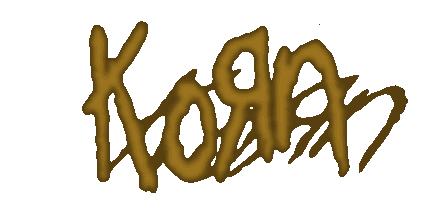

The last three months of any year is usually when most record companies try to make about half their money. Most of the prestige releases are crammed into the window between Labor Day and Thanksgiving, with an eye to holiday buyers. Well, the holidays are all but over, and there’s been one surprise winner in this sweepstake. Korn, which originally hailed from Bakersfield but now calls Huntington Beach home, has built a steady following. The fans have pushed the band’s sales of its self-titled debut from about 1,000 copies a week to more than 17,000. The band has been on the road most of this year, and will begin next year opening for Ozzy Osbourne. Korn is following a career blueprint that has worked for bands as diverse as Metallica and R.E.M. Both those quartets toured for years, with minimal commercial radio exposure. As time went on, the mainstream caught up with both bands. It could easily happen to Korn, who are smart, treacherous and committed. "It’s been a really slow, slow process," says lead singer Jonathan Davis, 23 from Bakersfield, where he and his girlfriend, Rene, have gone to show off their 9-week-old son, Nathan. “Most bands go right up without touring and end up as one-hit wonders. We wanted to build a strong foundation. Our fans are very militant and very loyal. I’ve seen kids with Korn tattoos. One of them had my autograph tattooed on his arm.”
Thanks to the mix, Korn has drawn fans from every subgenre around. Davis is pleased with that. He knows he’s something of a misfit - a long-haired bagpipe player in the midst of Kern County’s blue-collar conformity. “We’ve got metal fans, alternative fans, Goth fans, punk fans and hardcore kids.” Davis says. “You go to one of our headlining shows, you see all kinds of people. I like that. It shows that kids don’t listen to us because it’s cool. I’ve seen the weird-looking Goth kids at metal shows we’ve played and they get all kinds of shit. I have to give them their propers for that. To go through all that, putting on the makeup and knowing people aren’t going to like it, just to see us -- it gives me a good feeling.” Davis began his musical life messing around in his father’s Bakersfield music store. He started playing drums when he was 5, and used to join his father’s band for their gigs at a local nightspot. Davis said he started picking up other instruments in the store and playing them. "There were music teachers in the store all the time giving lessons. Between their lessons, I asked them to teach me. I would learn the basics for each instrument and then would teach myself the rest." By the time Davis got to high school, he played well enough to become a musical all-star of sorts. He was also playing bagpipes and won medals at various Scottish games. (Davis plays the bagpipes on "Shoots and Ladders" on “Korn”). By this time, Davis’ dad had lost the music store. He started a recording studio and eventually ended up owning country pioneer Buck Owens’ studio. The elder Davis warned his son about getting into the music business. "He flat-out refused to let me get in," Davis says. "He kept saying ‘No, no, no, don’t do that.’ I wanted to be in music so bad." With his father’s admonitions ringing in his ears, Davis kept up with the only thing he liked to do -- assisting with autopsies at the Kern County medical examiners office. He ended up attending the San Francisco School of Mortuary Science on Divisadero. He is perhaps the school’s best know alumnus. After school, Davis went back to Bakersfield, interning at a funeral home while he trained to be a deputy coroner. "I cut up people I knew: drug overdoses, car accidents, a guy who died when a typewriter fell on his head. That kind of stuff shows you you could die at any minute." Davis didn’t die. He hooked up with what eventually became Korn, moved to Huntington Beach and acquired an amphetamine habit. “I was hanging around a speed dealer, and one thing led to another,” he says. “I wrote ‘Helmet in the Bush’ about it. I was staying up. I had to. Two years later, I quit. I was going on tour, and you can’t do that on tour. Speed takes your soul away.” Davis was in touch with his soul enough that he ended up recording some of his vocals for the album at his dad’s studio. The rest of "Korn" was recorded in the hills of Malibu, and Davis says the atmosphere made the band a little uncomfortable. “It was green; you could pick fruits off the trees,” Davis says. “Bakersfield is a very strange place. I got this weird, sick, cool vibe doing vocals where (Buck Owens) did all his albums. I went to the heart of Oildale, which is white-trash central. You know, tweaked-out speedsters, the bars with chicken wire in front of the stage. That’s the kind of vibe I needed. You have to feel right to sing the songs. Malibu wasn’t right.” Davis is an intense vocalist. At the end of “Korn” he’s heard sobbing on "Daddy", which was a totally impromptu action. The song is a about incest, which is not a part of Davis’ history. He’s vowed never to to the song live, because he wouldn’t want to fake the emotion that went into the recording. Right now, Davis is looking forward to the end of the Osbourne tour. Korn has toured the States six times, which hasn’t left the members any time to write. “We need to start writing the new album,” Davis says. “We have had no time whatsoever to deal with it” San Jose Mercury, 1995 |